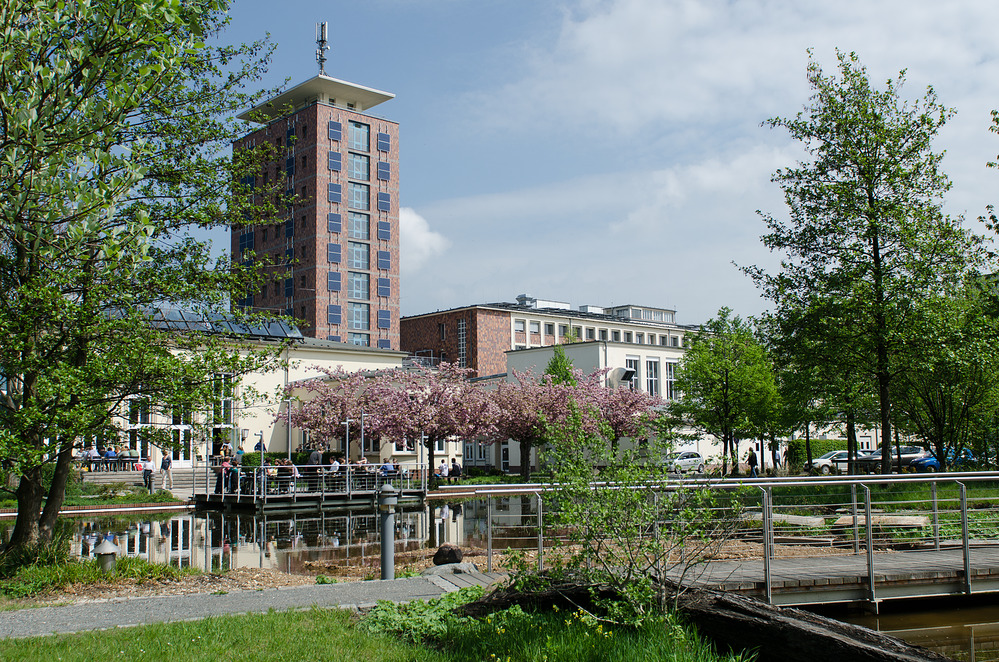The UFZ Cityoffice – Your Compass for Climate-Resilient Urban Development

The UFZ Cityoffice supports cities and municipalities in addressing the challenges of climate change through scientifically grounded and practice-oriented strategies.
By applying modern methods and targeted analyses, we create a robust foundation for sustainable decisions in urban and infrastructure planning.
Our particular expertise lies in the field of blue-green infrastructure, while also offering numerous points of connection to other key areas of sustainable urban development.
By applying modern methods and targeted analyses, we create a robust foundation for sustainable decisions in urban and infrastructure planning.
Our particular expertise lies in the field of blue-green infrastructure, while also offering numerous points of connection to other key areas of sustainable urban development.
Tailored. Objective. Scientifically grounded.
These three principles define the identity of the UFZ Cityoffice. They form the foundation of our work and ensure the scientific quality, neutrality, and practical applicability of our analyses and recommendations.
Tailored
We develop customized analyses for your specific application case. In doing so, we calculate and model the optimal use of blue-green infrastructure, adapted to your local requirements and framework conditions.Our evaluation incorporates a variety of relevant factors to provide you with a well-founded and transparent basis for decision-making.
Objective
Since we maintain no framework agreements with manufacturers and have no partnerships with construction companies, we are able to provide entirely independent recommendations.Our focus lies solely on identifying the best possible solution for your project—not on commercial interests or external partnerships.
Scientifically Grounded
Our analyses are based on the latest scientific findings. The team at the UFZ Cityoffice is made up of experienced and renowned researchers who are actively engaged in scientific work.Thanks to the close integration of science and practice, current, scientifically validated results are continuously incorporated into our work – ensuring analyses that reflect the latest state of research.
From Research to Application
The UFZ Cityoffice supports cities and municipalities from the initial idea to concrete implementation.Our services combine scientific methodology with practical application – delivering well-founded, feasible results.
Scenario Development & Preliminary Planning
We develop technically and spatially plausible scenarios for the implementation of blue-green infrastructure — providing a robust basis for decision-making for public authorities, planning offices, and project developers.Modeling & Evaluation
Through spatial modeling, impact analysis, and cost estimation, we assess the effects of different solutions — for example, regarding heavy rainfall risks, irrigation needs, or urban climate impacts.Potential Maps & Decision Support
We visualize relevant potentials — whether for rainwater management, urban green spaces, or combined solutions — thereby creating a sound foundation for strategic and planning decisions.Workshops & Trainings
Our practice-oriented trainings bridge theory and application. Using concrete case studies, we teach methods and tools that municipal actors can directly apply in their work.Shaping the Future Together
Are you a city or municipality that…
- …is facing challenges from heavy rainfall, heat, or drought periods?
- …is looking for scientifically grounded approaches to sustainable urban development?
- …wants to identify the potential of blue-green infrastructure in your urban area?
- …wants to compare and strategically evaluate different solution options?
- …needs a solid, data-based foundation for your next planning steps?
Then we are here for you — as a competent and reliable partner.
Get in touch with us – together we’ll develop sound strategies for climate-resilient and future-proof urban development.

